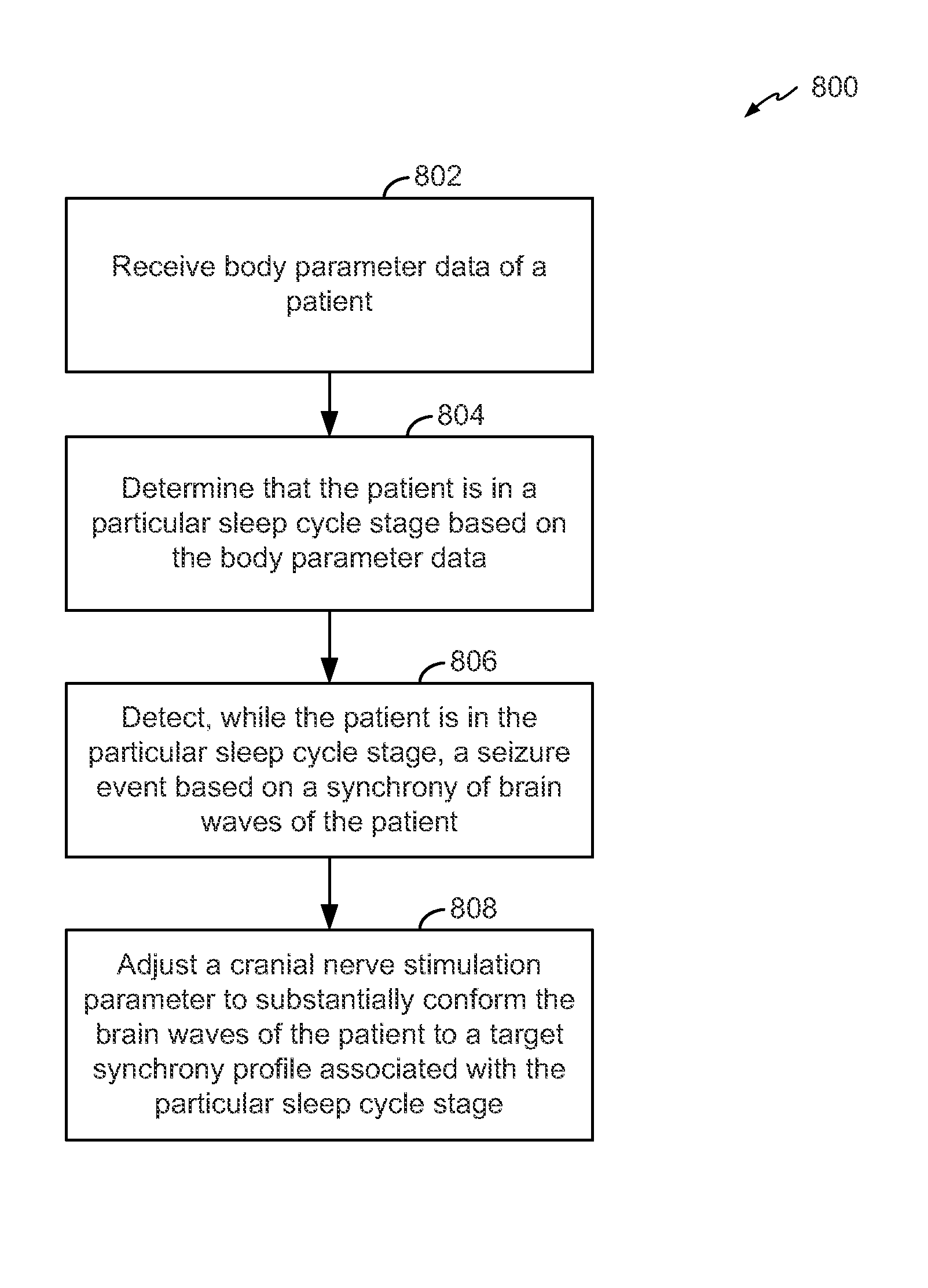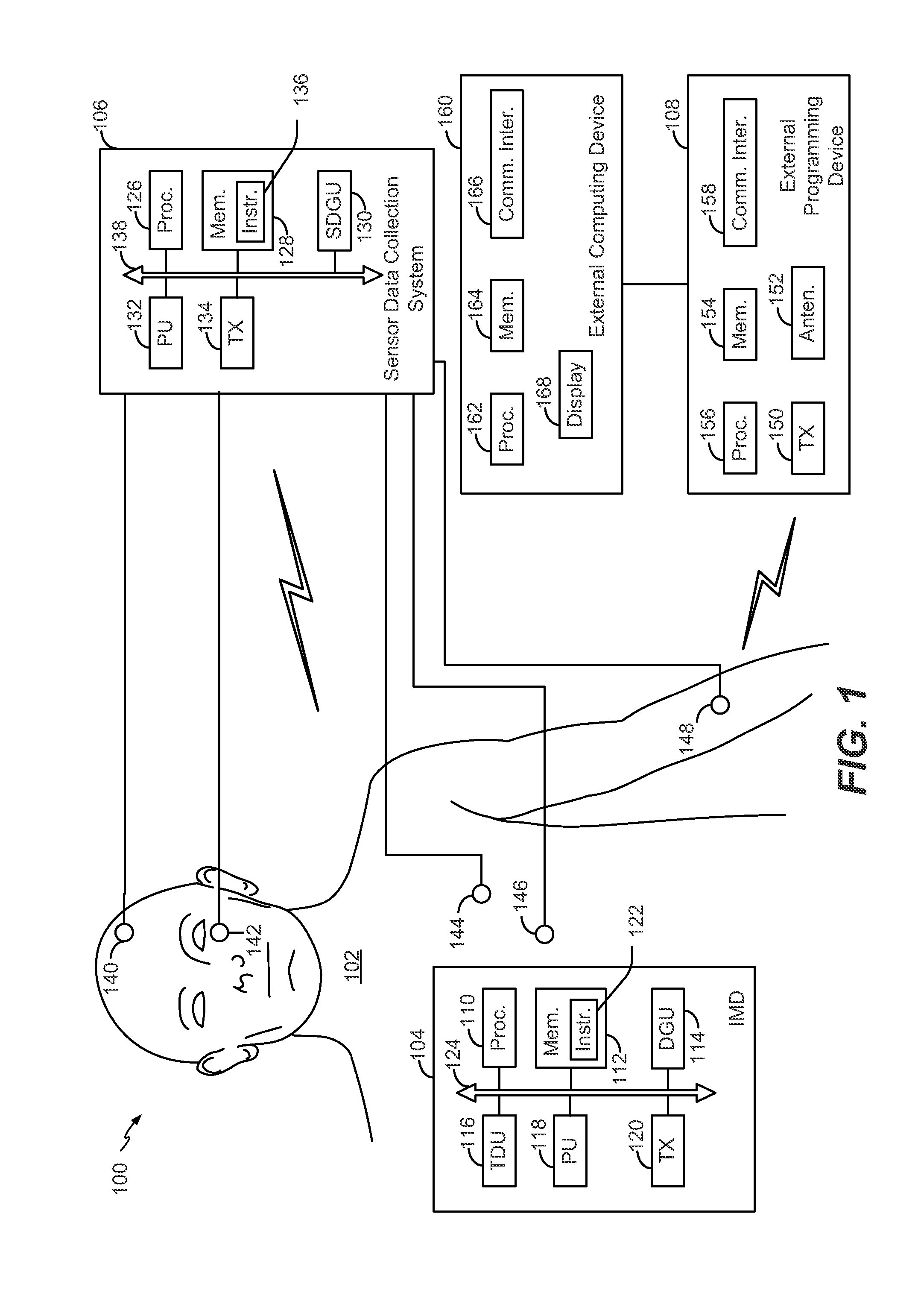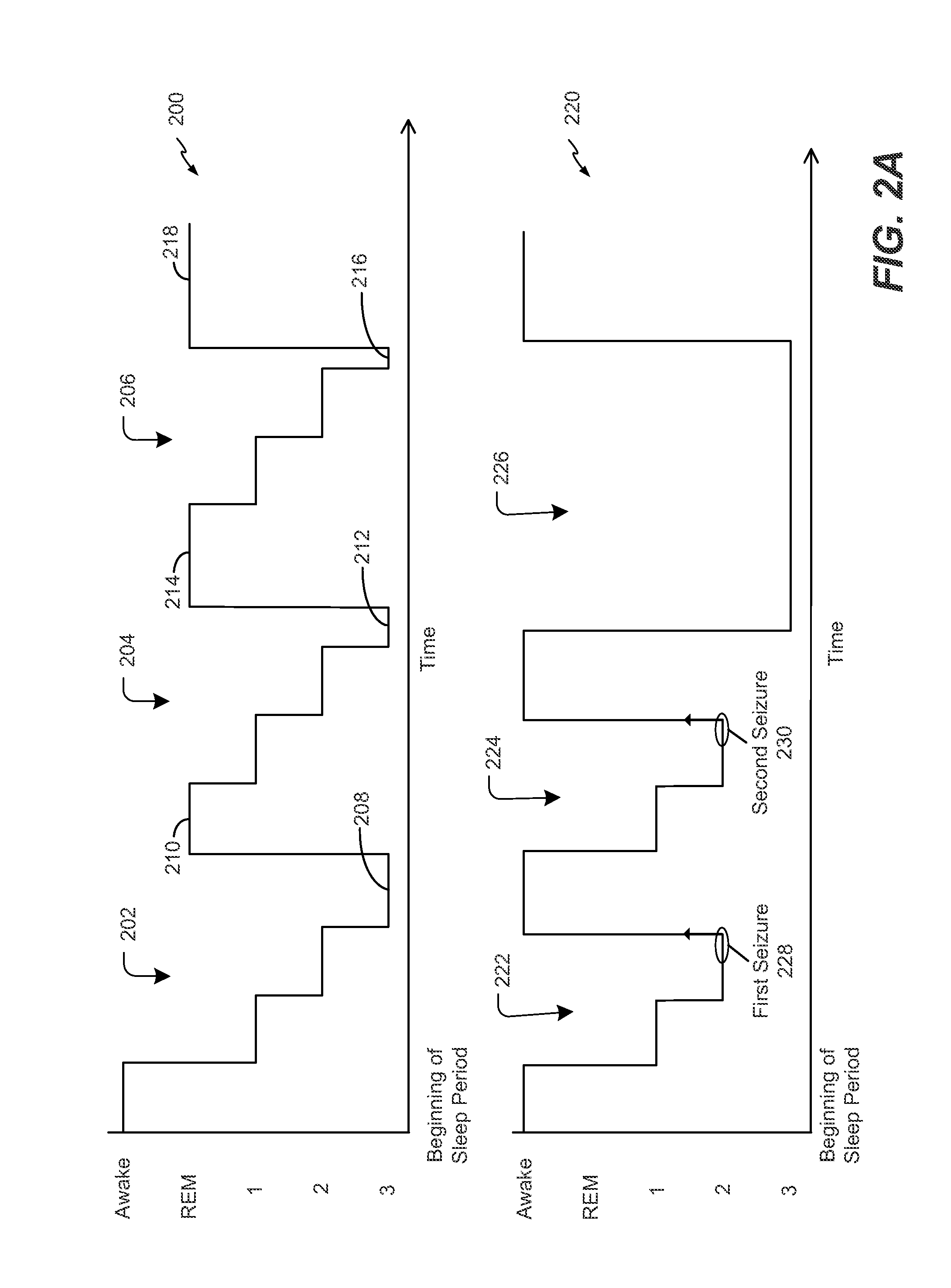Optimization of cranial nerve stimulation to treat seizure disorderse during sleep
a cranial nerve and seizure technology, applied in the field of cranial nerve stimulation to treat seizure disorders, can solve the problems of affecting the patient's sleep quality, and affecting the patient's seizure, so as to improve the patient's sleep quality, reduce the likelihood of a seizure occurring during the sleep cycle, and increase the amount of sleep
- Summary
- Abstract
- Description
- Claims
- Application Information
AI Technical Summary
Benefits of technology
Problems solved by technology
Method used
Image
Examples
Embodiment Construction
[0021]Referring to FIG. 1, a block diagram of a system 100 that uses cranial nerve stimulation (CNS) to treat seizures of a patient 102 (e.g., an epilepsy patient) during sleep is shown according an exemplary embodiment. CNS may include vagus nerve stimulation (VNS), trigeminal nerve stimulation (TNS), stimulation of other cranial nerves, or a combination thereof. The system 100 may include an implantable medical device (IMD) 104, a sensor data collection system 106, and / or an external programming device 108. The IMD 104 may include a processor 110, a memory 112, a data gathering unit (DGU) 114, a therapy delivery unit (TDU) 116, a power unit (PU) 118, a transceiver (TX) 120, a system bus 124, other components (not shown), or a combination thereof. The processor 110 may be a single processor of the IMD 104 or multiple processors of the IMD 104. The memory 112 may include instructions 122 that are executable by the processor 110 to perform or control various functions of the IMD 104....
PUM
 Login to View More
Login to View More Abstract
Description
Claims
Application Information
 Login to View More
Login to View More - R&D
- Intellectual Property
- Life Sciences
- Materials
- Tech Scout
- Unparalleled Data Quality
- Higher Quality Content
- 60% Fewer Hallucinations
Browse by: Latest US Patents, China's latest patents, Technical Efficacy Thesaurus, Application Domain, Technology Topic, Popular Technical Reports.
© 2025 PatSnap. All rights reserved.Legal|Privacy policy|Modern Slavery Act Transparency Statement|Sitemap|About US| Contact US: help@patsnap.com



